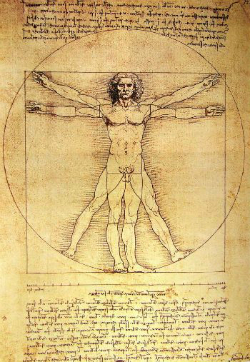We know that the realm of words is plentiful. They spring from our thoughts in a natural way, we are not concerned with elaborating what we say or even write.
Words, however, can exceed their limits of meaning. Thus, being able to conquer new spaces and pass on new possibilities of perceiving reality.
The path that literature takes is this. The artist feels, chooses and manipulates words, organizes them so that they produce an effect that goes beyond their objective meaning, seeking to bring them closer to the imaginary.
The writer's work is the result of his imagination, although it is based on real elements. From the materialization of this work, the literary work emerges.
Endowed with a keen perception, the writer captures reality through his feelings. It explores linguistic possibilities and manipulates them at the semantic, phonetic and syntactic levels.
Literature is an artistic manifestation. And it differs from others by the way it expresses itself, its raw material is the word, the language. The literary text is characterized by the predominance of the poetic function.
Observe, in the poem Procura da Poetry, how the poet Carlos Drummond de Andrade describes the writer entering the “realm of words”.
Poetry Search
Do not make verses about events.
No creation or death before poetry.
In front of her, life is a static sun, neither warming nor illuminating.
Affinities, birthdays, personal incidents do not count.
Don't do poetry with the body,
that excellent, complete and comfortable body, so inimical to the lyrical effusion.
Your drop of bile, your grimace of joy or pain in the dark
they are indifferent.
Don't even reveal your feelings to me,
who take advantage of misunderstanding and attempt the long journey.
What you think and feel, this is not poetry yet.
Don't sing your city, leave it alone.
Singing is not the movement of machines or the secret of houses.
It is not music heard in passing; roar of the sea in the streets by the foam line.
singing is not nature
nor men in society.
For him, rain and night, fatigue and hope mean nothing.
Poetry (don't take poetry out of things)
elide subject and object.
Don't dramatize, don't invoke,
do not inquire. Do not waste time lying.
Don't get upset.
Your ivory yacht, your diamond shoe,
your mazurkas and abuses, your family skeletons
disappear on the curve of time, it is useless.
do not reset
your buried and melancholy childhood.
Do not swing between the mirror and the
dissipating memory.
What dissipates was not poetry.
That broke, crystal was not.
It penetrates deafly into the realm of words.
There are poems waiting to be written.
They are paralyzed, but there is no despair,
there is calm and freshness in the innate surface.
Here they are alone and mute, in a dictionary state.
Live with your poems, before writing them.
Have patience, if obscure. Calm down, if you are provoked.
Expect each one to perform and consume
with your word power
and its power of silence.
Don't force the poem out of limbo.
Do not pick up the lost poem on the ground.
Don't flatter the poem. accept it
how will it accept its definitive and concentrated form
in space.
Step closer and contemplate the words.
Each one
has a thousand secret faces under the neutral face
and asks you, not interested in the answer,
poor or terrible, whatever you give him:
Did you bring the key?
Notice:
melody and concept letters
they took refuge in the night, the words.
Still damp and full of sleep,
they roll in a rough river and turn into contempt.
ANDRADE, Carlos Drurmmond de. Full poetry & prose. Rio de Janeiro: José Aguilar, 1973.
“Search for poetry” is one of the opening texts of the book A rosa do povo, which brings together poems written between 1943 and 1945, the set formed by these texts results in one of the most beautiful and profound reflections on "poetic making", on the art and usefulness of poetry.
* The BrasilEscola.com Site, holds its copyright on this article, any publication of the even without prior written authorization from the team, it will be considered an infringement of rights copyright. Remembering that the only copy that is not required written permission is for school work.
Do not stop now... There's more after the advertising ;)

